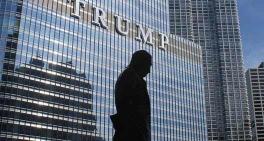Delay in Nevada gun buyer law draws protests at court debate
U.S. Court News
A lawyer seeking a court order to enforce a Nevada gun buyer screening law that has not been enacted despite voter approval in November 2016 blamed the state's Republican governor and attorney general on Friday for stalling the law.
"For either personal or political reasons," attorney Mark Ferrario told a state court judge in Las Vegas, Gov. Brian Sandoval and GOP state Attorney General Adam Laxalt "chose to stand back and really do nothing."
Nevada Solicitor General Lawrence Van Dyke countered that the law was fatally flawed as written because it requires Nevada to have the FBI expend federal resources to enforce a state law.
"State officials here have not tried to avoid implementing the law," Van Dyke said. "They have negotiated (and) talked with the FBI, and the FBI said no, four times."
Clark County District Court Judge Joe Hardy Jr. made no immediate ruling after more than 90 minutes of arguments on an issue that drew about 25 sign-toting advocates outside the courthouse calling for enactment of the measure.
"The people have spoken," said protest speaker Peter Guzman, president of the Las Vegas Latin Chamber of Commerce. "To deny that voice is to deny democracy."
Some speakers, including Democratic state Assemblywoman Sandra Jauregui, cited the slayings of 58 people by a gunman firing assault-style weapons from a high-rise casino shot into an concert crowd on the Las Vegas Strip last Oct. 1. Jauregui was at the concert.
Others pointed to gun-control measures being debated nationally following a shooting that killed 17 people last week at a school in Parkland, Florida.
In the courtroom, Ferrario referred to what he called a "movement toward increasing gun checks," while the Nevada law has stalled.
"This loophole that the citizens wanted to close remains open because the governor has failed to take appropriate action," the plaintiffs' attorney said.
Sandoval spokeswoman Mari St. Martin dismissed the accusations as "political posturing." She said the initiative specifically prohibits the state Department of Public Safety from handling background checks, leaving "no clear path forward" to enactment.
Related listings
-
State appeals court reinstates California's right-to-die law
U.S. Court News 06/16/2018A state appeals court has reinstated — at least for now — California's law allowing terminally ill people to end their lives.The Fourth District Court of Appeals in Riverside issued an immediate stay Friday putting the End of Life Option ...
-
Egypt refers 28 to criminal court for forming illegal group
U.S. Court News 06/08/2018Egypt's chief prosecutor has referred 28 people to a criminal court on charges including forming an illegal group aiming to topple the government.Sunday's statement by prosecutor Nabil Sadek says the suspects face an array of additional charges, incl...
-
UK Supreme Court criticizes Northern Ireland abortion laws
U.S. Court News 06/06/2018Britain's Supreme Court on Thursday criticized Northern Ireland's strict anti-abortion laws but dismissed a legal challenge.A majority of the court decided that the Northern Ireland Human Rights Commission, which initiated the case, did not have the ...

Any contracts or any transactions can go awry at any time
We know your business means a lot to you and want to understand all the aspects of your business so that we can help you in the best ways possible. We don’t discriminate depending on the size of your company. Our mission statement is to represent all business owners and entrepreneurs by navigating them through the rough waters of business litigation and guiding them to success.
We are attorneys who want to make sure we understand your business objectives and goals before we start providing you with legal counsel individualized to your business. We know what it means to be dedicated to your business. After all, we are a business as well. And just like you, we want to provide the best service we can to our clients.
Any contracts or any transactions can go awry at any time. Sometimes, making important business decisions without legal help from business attorneys could cost you your business.We don’t want you or your business to be misconstrued by anyone. Our attorneys make sure that we communicate with you often to make sure we are giving you the legal guidance you need at all times. We make sure we are responsive in a timely-manner with every single one of our clients to help them identify risks and prevent legal battles before they arise.




